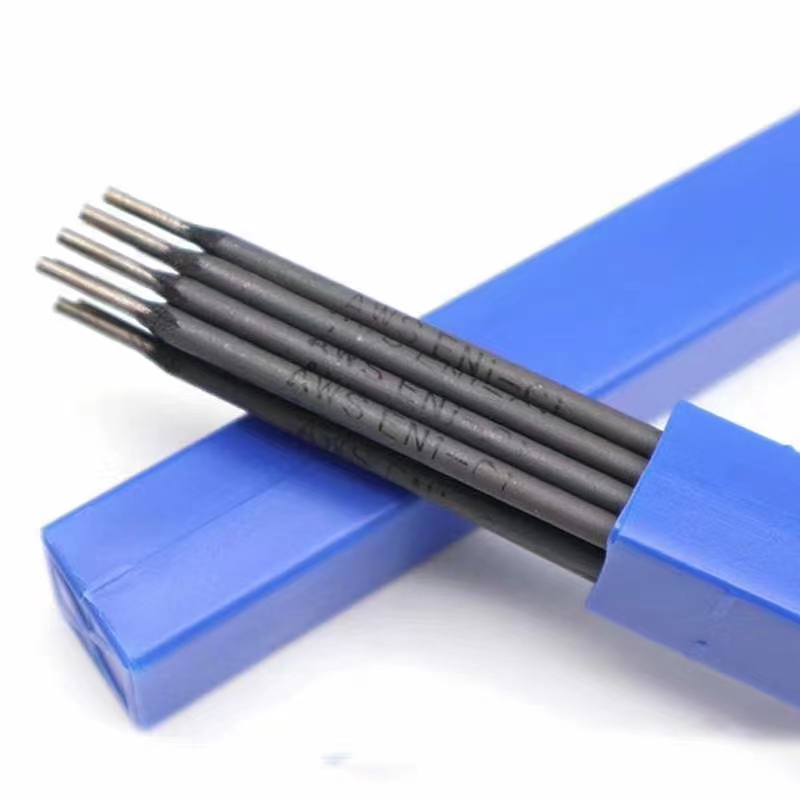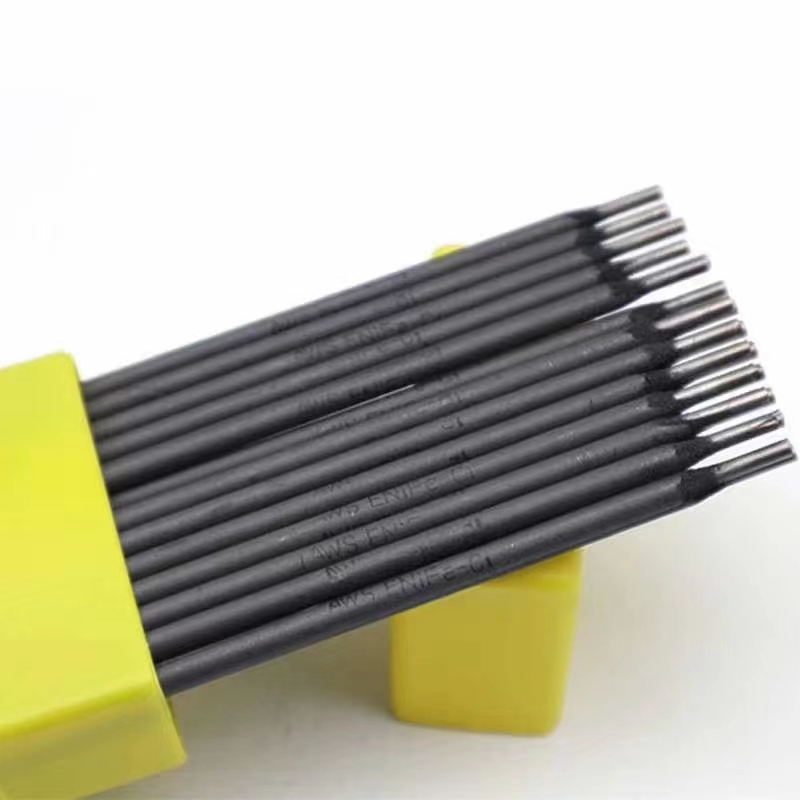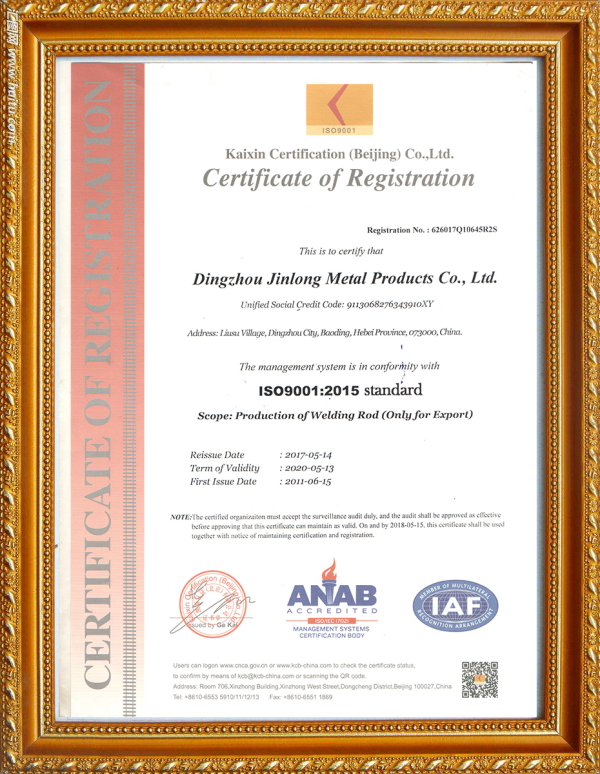Current location:
...
...
...
...
...
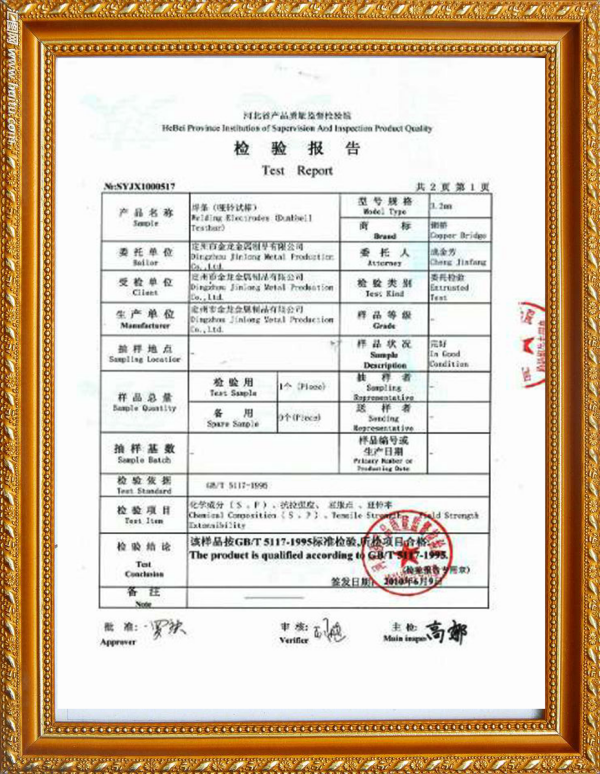

Cast iron welding rod is a welding rod used for cast iron, characterized by high strength and good plasticity. It is suitable for gray cast iron and ductile iron, and can be machined.
Cast iron is usually classified according to the distribution of carbon in cast iron, and can generally be divided into white cast iron, gray cast iron, ductile cast iron, vermicular cast iron and malleable cast iron. Due to the high carbon content, uneven structure, low plasticity and poor weldability of cast iron, it is very easy to produce defects such as white cast iron, cracks and pores during welding. Special attention should be paid to the selection of welding process and welding materials during welding. For welding rod arc welding, it can basically be divided into two categories, one is the homogeneous weld type, namely cast iron type; the other is the heterogeneous weld type such as: steel (carbon steel or alloy structural steel, etc.), pure Ni (pure nickel 308), Ni-Fe (nickel iron 408), Ni-Cu (nickel copper 508), Ni-Fe-Cu, Fe-Cu, etc. When selecting welding rods, you can choose according to different cast iron materials, different cutting requirements, different service conditions and importance, different structural characteristics, stiffness, etc.
Understanding the Chinese welding electrode market doesn't end with recognizing product quality. Engaging with this segment entails a commitment to ongoing education and relationship-building. Manufacturers often offer training sessions and workshops to enhance user proficiency, emphasizing an educational approach that underscores their dedication to partner success.
When considering procurement of welding electrodes from China, the diverse selection available can accommodate a variety of welding processes, including shielded metal arc welding (SMAW), gas metal arc welding (GMAW), and submerged arc welding (SAW). These electrodes are engineered to deliver superior welds in both ferrous and non-ferrous applications, making them a valuable asset for projects requiring robust weld integrity.
Finding a reliable welding electrodes supplier can significantly impact the quality of your welding projects and the efficiency of your operations. Experts in welding understand that choosing the right supplier is not just about sourcing materials; it's about ensuring that those materials meet stringent standards for performance and safety. This article provides insights into selecting the best welding electrodes supplier by focusing on experience, expertise, authoritativeness, and trustworthiness.
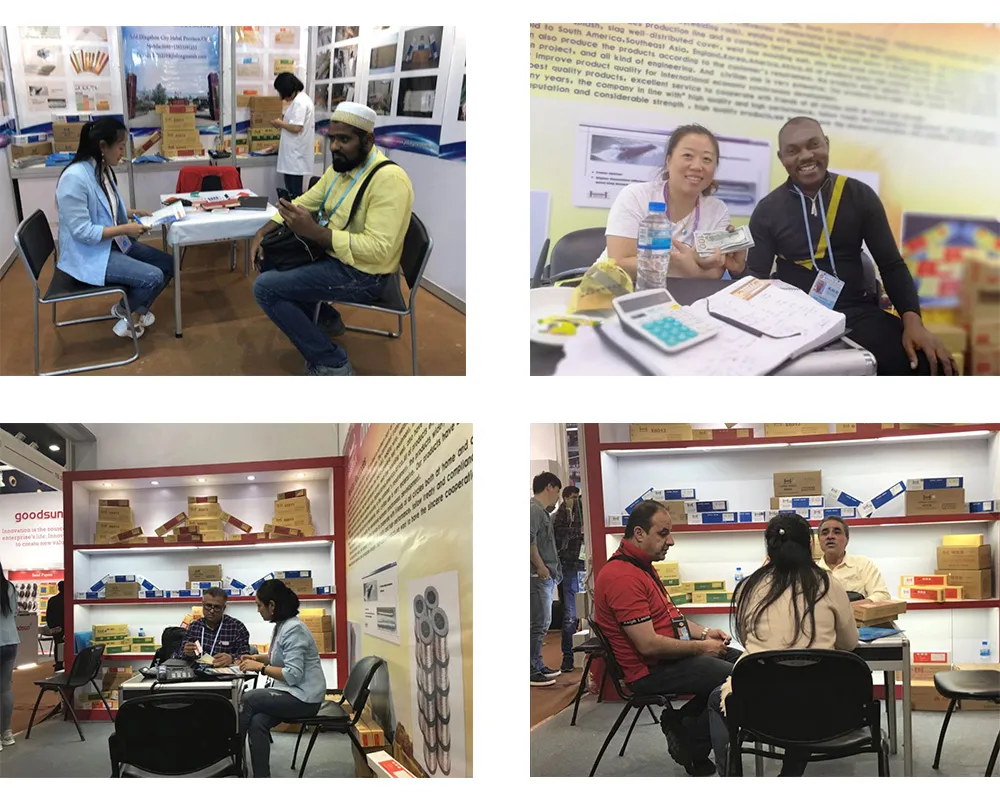
Finding a reliable welding electrodes supplier can significantly impact the quality of your welding projects and the efficiency of your operations. Experts in welding understand that choosing the right supplier is not just about sourcing materials; it's about ensuring that those materials meet stringent standards for performance and safety. This article provides insights into selecting the best welding electrodes supplier by focusing on experience, expertise, authoritativeness, and trustworthiness.

Finding a supplier that excels in these areas can be transformative for businesses and individual craftsmen alike. Let's explore these four dimensions and understand why they are pivotal in choosing a welding electrodes supplier, ensuring both product excellence and operational synergy.
Authoritativeness in the welding industry is often measured by a manufacturer’s influence in shaping industry standards and practices. Participation in welding conferences, contributions to technical journals, and collaborations with academic institutions signify a manufacturer’s authority. Through these platforms, they actively engage in dialogues that advance welding technology, illustrating their commitment to not just their products, but to the industry's overall evolution.
